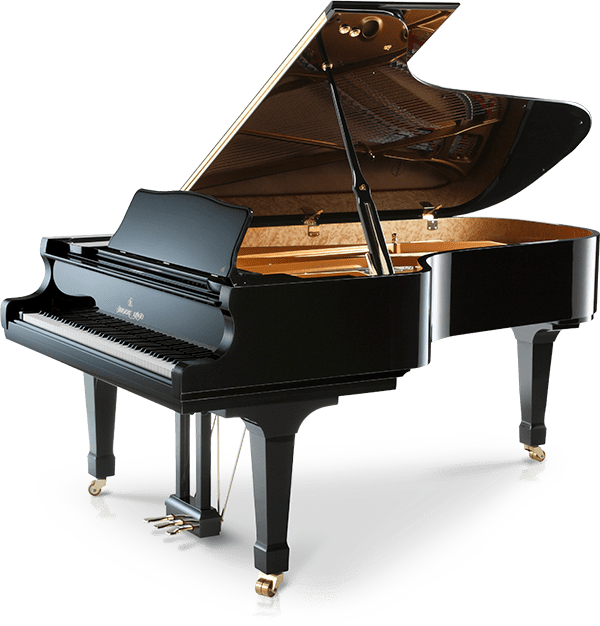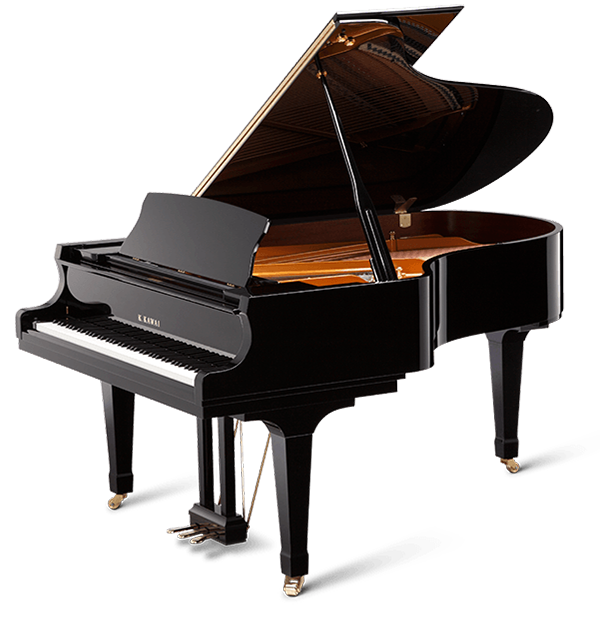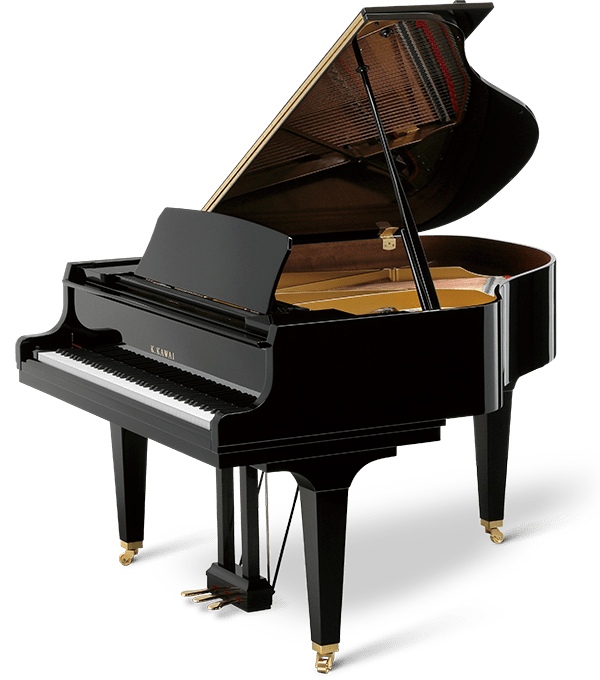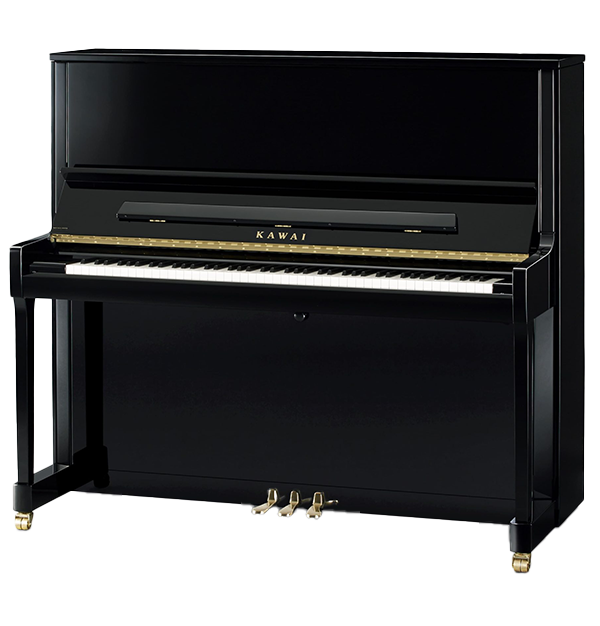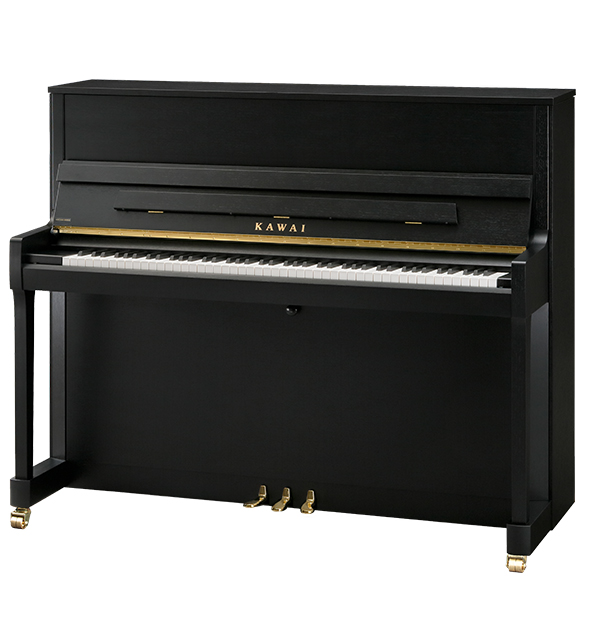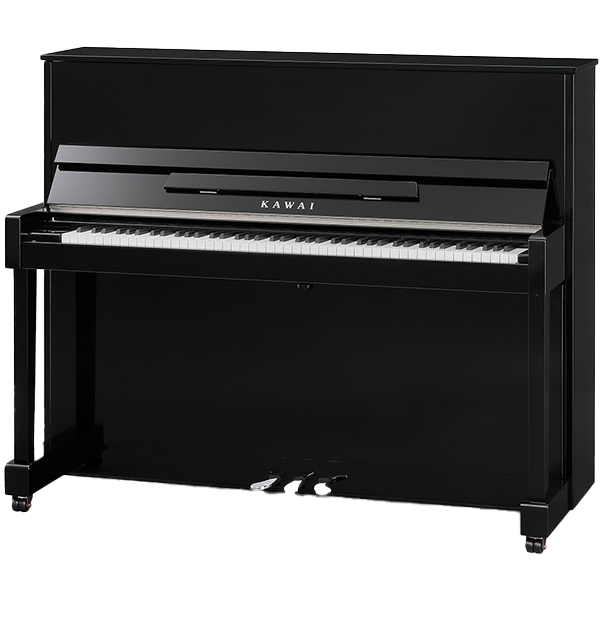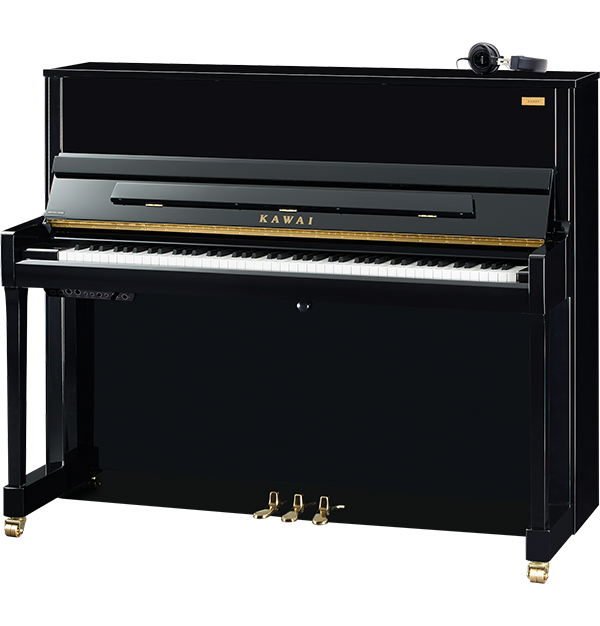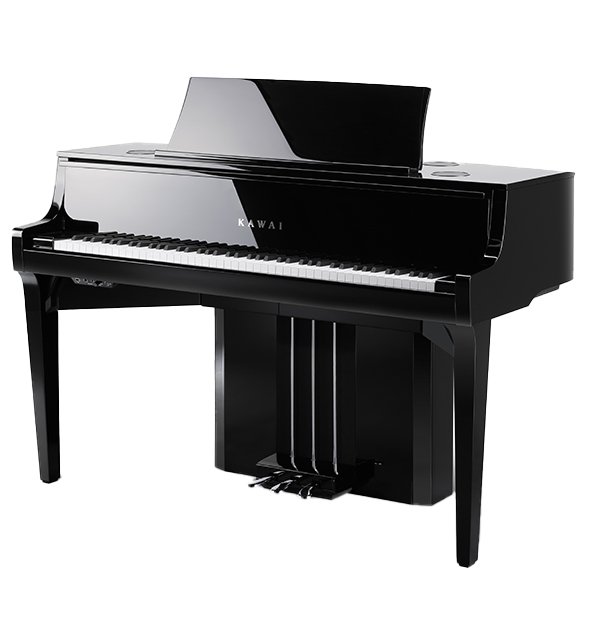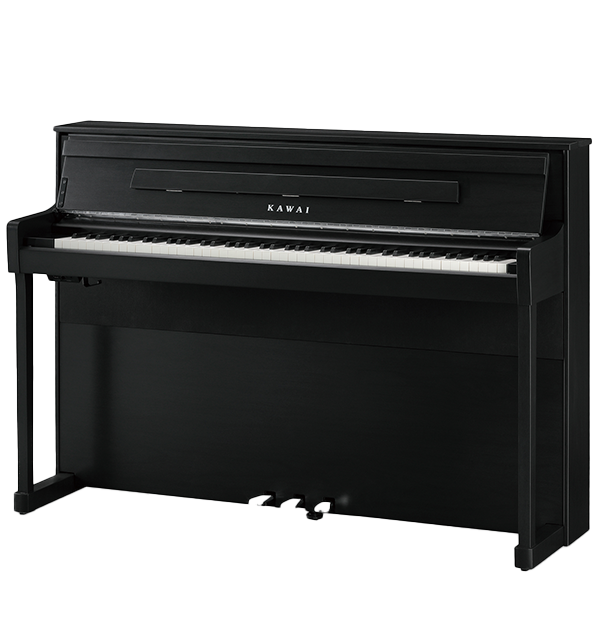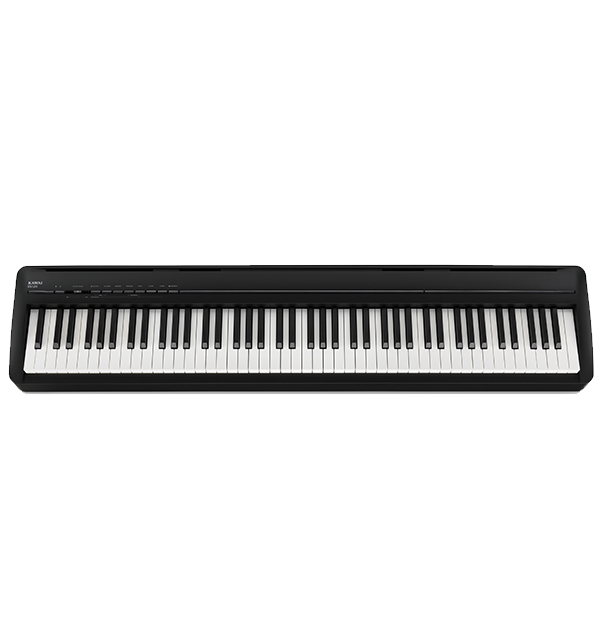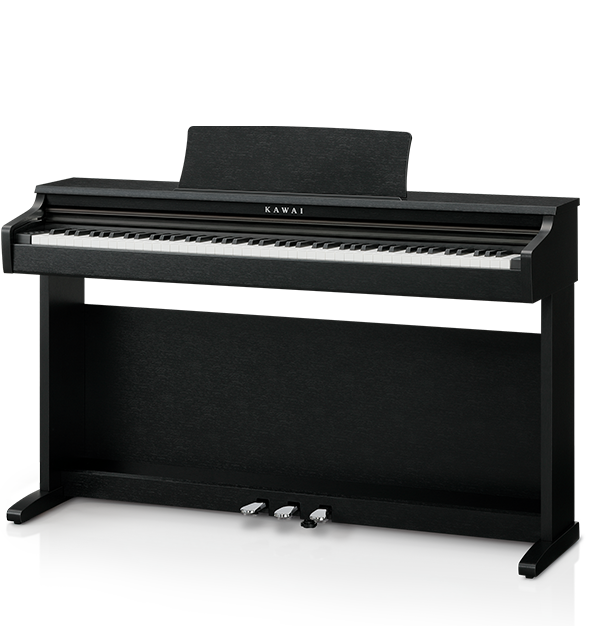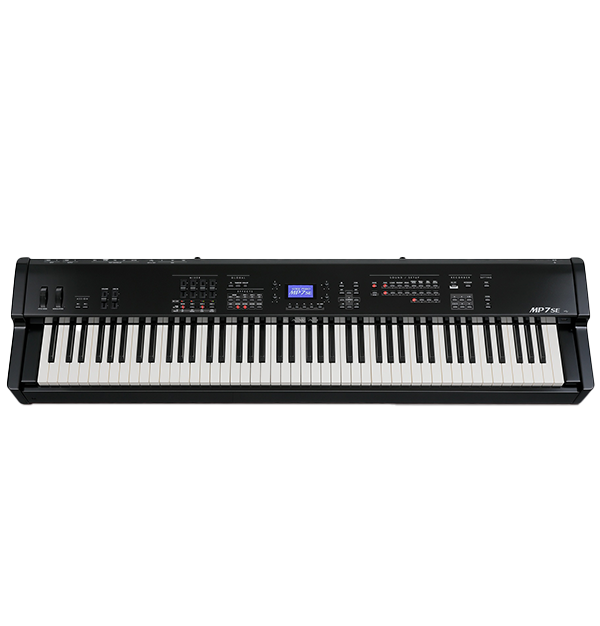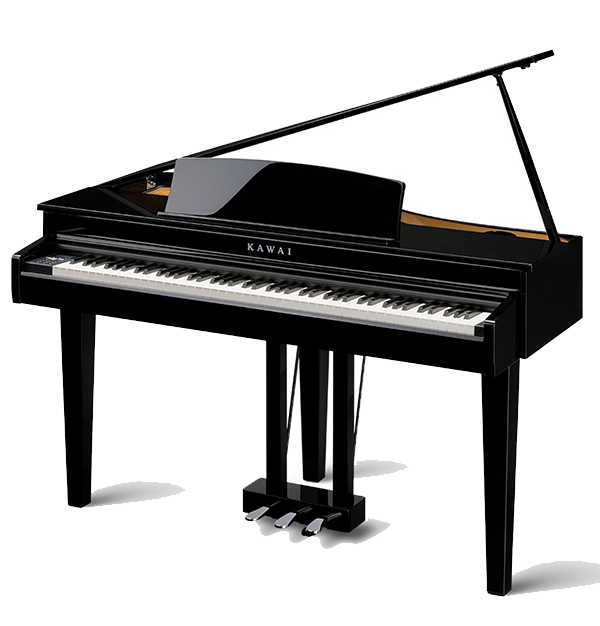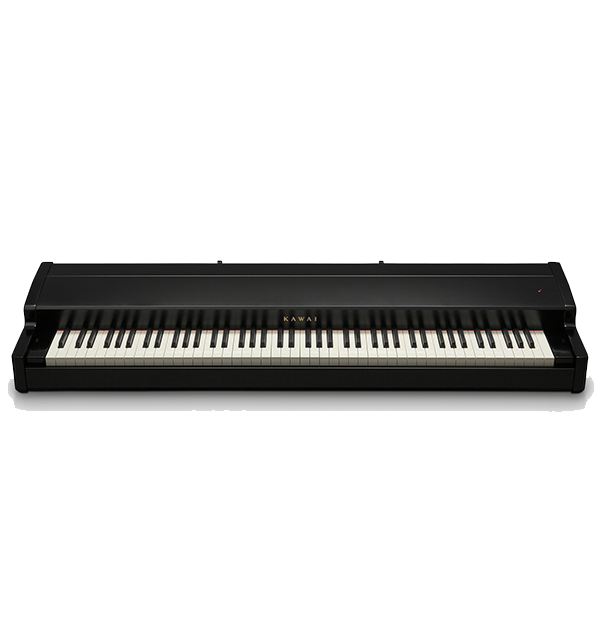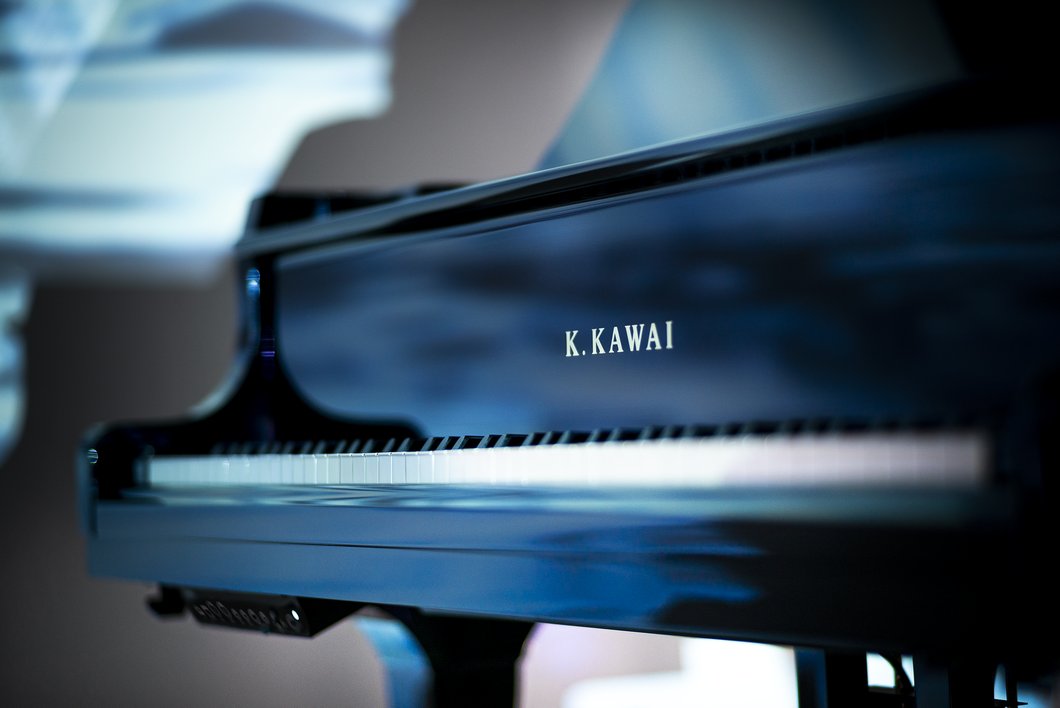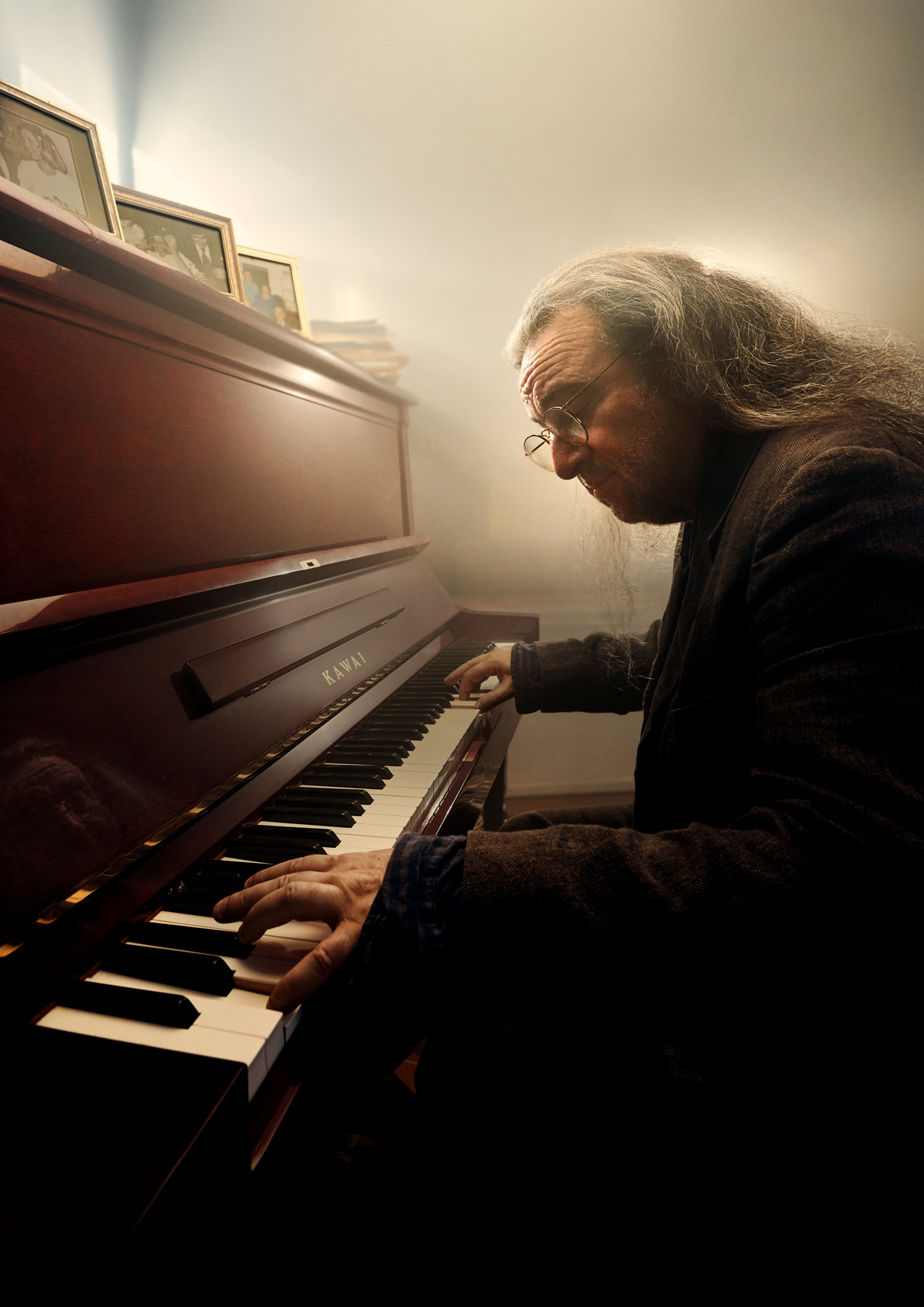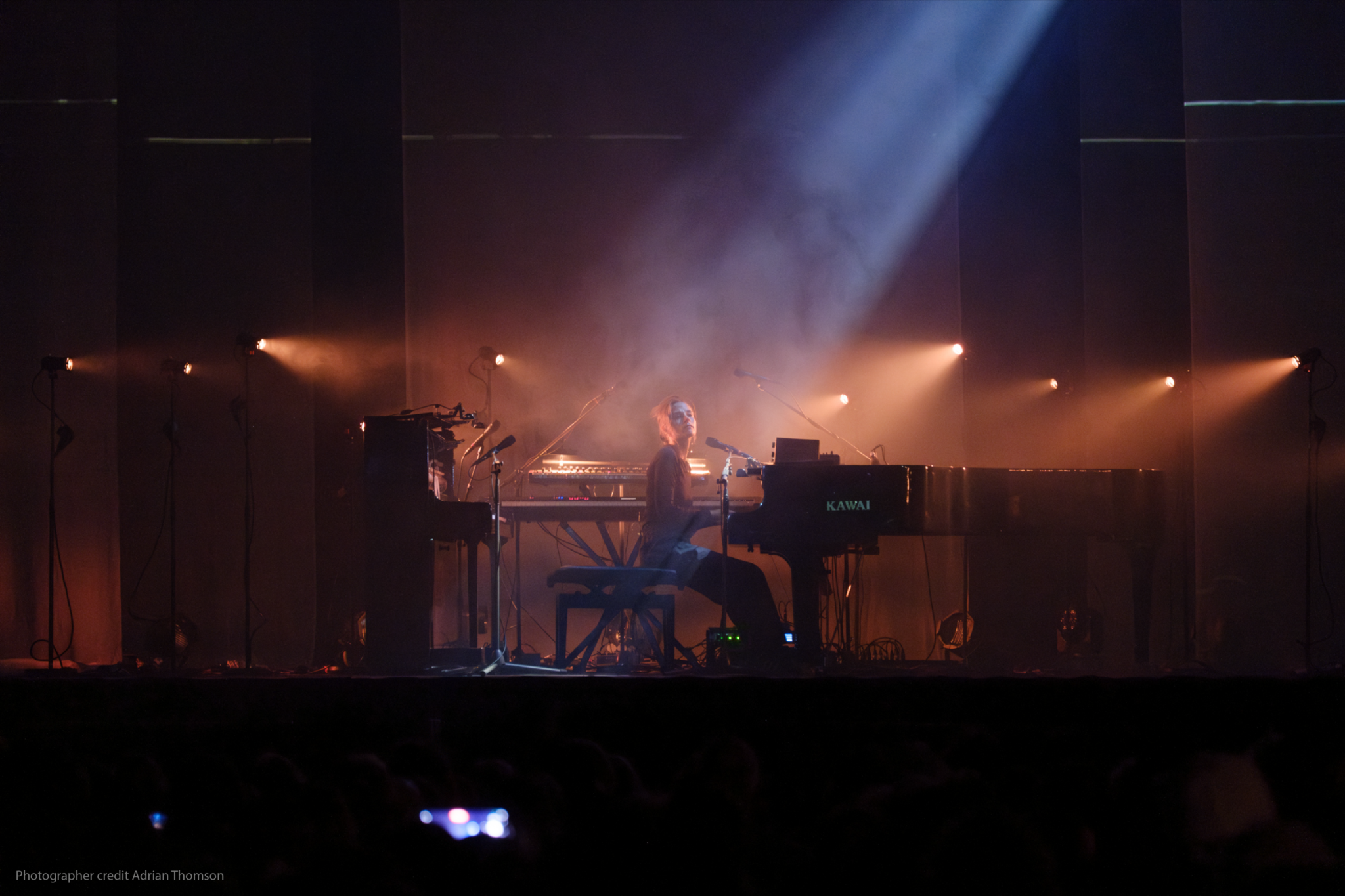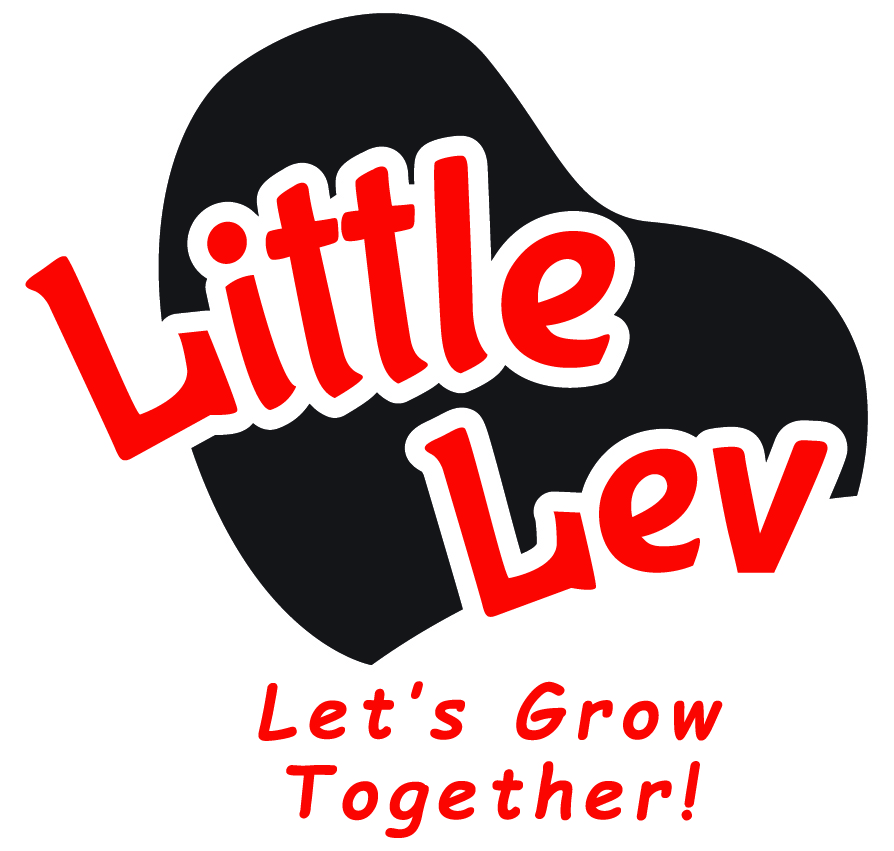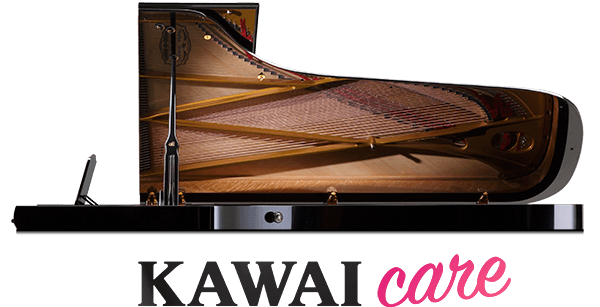This interview is republished with permission from the Australian Music Examinations Board.
Multi-award winning Australian concert pianist and composer Michael Kieran Harvey isn’t your average professional musician. Widely considered one of the foremost interpreters of contemporary piano music, Michael is a champion of Australian music as a performer, composer and commissioner of new Australian music.
We talked to Michael about his career, about how he rejected the typical concert pianist path, how he finds meaning in what he plays, how he battles stage fright, and found out what inspires him in the world of science, literature and music.
You talk about coming upon Carl Vine’s music, namely his Sonata as an “Ah-ha” moment, where you realised that this was the type of music you wanted to perform. Do you recall your early ‘Ah-ha moments’ when you were learning to play that helped you carve out your musical pathway?
One of my early ‘ah-ha’ moments was the realisation that the energy in music happened in the joins, between the notes, underneath the radar as it were. It was the Stravinsky sonata and it might have been a competition when I was about 11 or so: desperately experimenting prior to the performance, I decided that the way to an exciting reading of this fairly dry neoclassical piece lay in contextual contrast, actually playing inhumanly, like a machine, and resisting organic processes like rubato in favour of ‘cut-film’ contrasts. It is the negation of your own ego under pressure. That may not make sense to people who consider me an idiosyncratic or even histrionic player, but performance is not about me, only the music.
My ‘ah-ha moments’ as an adult were really times when I could see a point in continuing professionally with music. I know that seems pretty grim, but I also know that a lot of young people in particular find it hard sometimes, so I think it’s important for them to realize others understand; music’s not all about fake cheerfulness and effortless talent. I’ve been lucky so far – these ‘ah-ha moments’ have come just when I needed them. I haven’t strategized for them though. Vine’s sonata arrived in my letterbox at a time I was ready to pack it in: I’d just returned from overseas incredibly disillusioned with the European competition music scene. Vine’s music was strong and didn’t sound mawkish or cute and pastoral like so much marketed Australian music just then (late 1980s), and it restored my faith in Australian music. It represented something I felt I could really contribute to, and hopefully make a difference.
I remember when I was very young, about 7, deciding to do something about my sight reading. My grandmother, who was a music teacher, had all these old AMEB books. I remember sight-reading through all the grades until the sun set through her venetians, making stripes on the music. I kept reading till it was dark, hypnotized. Then I just kept improvising. I was really engrossed and happy. That was an ‘ah-ha moment’, when I realized listening to, exploring and preferably playing unfamiliar music was fascinating to me. That, if you like, is a direct connection I have with the AMEB: if it wasn’t for the fact all those books were hanging around my grandmother’s music room, and my family were relieved I was finally occupied and not terrorizing them so left me in peace, I might not have been turned on to a lifetime dedicated to contemporary music!
You’ve mentioned that you can sometimes have terrible stage fright. How do you battle your stage fright? What sort of tools (so to speak) have you found work best for you when you prepare to go on stage?
Any performance is nerve-wracking because it’s in front of my harshest critic – me. However, ‘me’ is also playing and is psychologically vulnerable; ‘me’ is doing his best, so lighten up will ya?
I think the only attitude that one can have to feeling nervous is that it would be a sign of serious death or major psychopathy if you didn’t feel nervous, so aren’t you lucky? I also think “what’s the worst that can happen?” Perhaps a bomb in the theatre or wherever – so if it doesn’t happen and you’re still alive by the end you’ve done a lot better already than a number of unfortunate people.
Other situations like exams etc. – well, I mean, world history isn’t exactly a catalogue of exam results is it? Will people be interested in your results a year, a week hence I wonder? A lot of musicians resort to drugs for nerves – I don’t condemn them, but I do think it paves the way for roboticism, as it emphasises approaches that promote comforting routine over flashes of inspiration that might upset the applecart. Failure is an option, a very human option, and this risk should be much more a part of our culture because it defines our humanity and stimulates innovation. It’s all we’ve got left come the rise of the machines.
You’ve said that for you, finding meaning in what you play is one of the most important parts of why you choose a particular piece or project. Can you talk about how you’ve sought this sort of meaning and whether finding meaning happens early on or as you get to know repertoire more intimately?
Hermeneutics, the interpretation of notation and symbols, the metaphorical unleashing of the imagination, and the overlaying of meanings, almost fractal-like, that occurs and seemingly can ONLY occur in music is what keeps me engaged with this art form, irrespective of prosaic career considerations. Interpretation has always been the most important and personal aspect of musicianship to me. I couldn’t understand the desire to conform to existing interpretations, or even worse, the desperate search for definitive interpretations that obsessed the teachers and institutions I grew up with. I always wanted to find my own means of artistic expression. Why bother otherwise?
Plenty of mechanically perfect renditions of repertoire are available as demos on electric keyboards and reproducing pianos. A score, or even a recording of improvised music is like a palimpsest, a multi-layered map. The score has undergone all these myriad distillations beginning with the composer trying to get the initial sound in their head down as notation, right through to the edited publication, then back to Urtext editions as all the encrustations are removed, then added again as teaching suggestions, paraphrases, arrangements etc. Recordings of great improvised performances are similarly condensed (look at Miles Davis’ Bitches brew for example), then mashed up, sampled, turned into icons, cultural memes, smug references, ironic signatures etc.
There are all sorts of levels to explore once you let go of ideas of the ‘definitive’ or ‘perfect’ or ‘absolute’ and start to think instead of ‘possibilities.’ The trouble is, most people are taught to conform and are constantly looking for ways of being pleasing to others. Music is sterile and boring under these mindsets. I wonder if we would have a canon of music in any genre at all if the musicians thought this way. Every one of them, from Bach to Liberace, Hildegard to Marilyn Manson, Gesualdo to Joe Zombie, Paganini to Cecil Taylor, Beethoven to Michael Frante, was a rebel, a non-conformist.
One of the many things that make you unique as a ‘classical’ pianist, is your love for rock and roll and experimental rock. Who are your favourite artists to listen to these days?
With respect I don’t think I’m anywhere near unique in my interest in more histrionic forms of music. We’re a predominantly visual culture, so all musicians have absorbed the visual images of especially pop musicians at some stage in their lives. What I like about some rock acts is their ability to send themselves up along with the whole ‘industry’ while still managing to make a living. That’s very clever and healthy. I tend to be more impressed though by the ones that can actually play their instruments – that’s my ultimate benchmark. I like my music instrumental, virtuosic and abstract.
There are so many musicians I admire, it’s hard to know where to start, and I always hate lists because you always miss out someone important, but I have to say some of my favourites are Australians like Anthony Pateras, Eugene Ughetti and Slave Pianos. I admire tremendously the musicianship of Tasmanian musicians Brian Ritchie and the Tom Vincent trio. John Zorn, DJ Spooky, Living Colour, John McLaughlin, anything with Terry Bozzio in it, Charles Wuorinen, Sepultura (especially Eloy Casagrande – astounding!), to name a few off the top of my head: the contemporary scene is exploding with an oversupply of extraordinary musicians all busily vying for attention. It’s an exhausting time to be alive, as every musical genre is bursting at the seams with people trying to make a living.
Often through your career, you’ve managed to reject the typical repertoire, standard gigs, and traditional ‘concert pianist’ career journey. Instead you’ve insisted upon following your own interests in new music, rock, Australian composition, and other areas. What sort of challenges did you face when making these decisions and what sort of support did you find along the way?
Again, with respect, people may be unaware that I have played and recorded an awful lot of traditional notated repertoire, and continue to do this on occasion, if only to prove how far one can reinterpret it. I certainly don’t reject it, I just feel that it doesn’t have much to say to me as a 21st century Australian, except from the historical perspective of museum pieces from imperialist countries. It’s a question of what I want to spend my very limited lifetime doing, where is the area of most need? I’ve always had a feeling of great responsibility to Australia, and my musical colleagues, who are all struggling to be heard against the tsunami of imported music. There’s a great deal of talk about not identifying as Australian and simply being a global citizen, but the fact is in classical music Australia lacks the positive chauvinism, philanthropic support and public pride of other countries in its own classical music, so it needs a lot of help, just like our film industry, to even begin to be heard.
I’m not a great fan of the concert pianist concept, which is why I have spoken out against training kids with this expectation (my views are quite well-known and accessible on the web). I certainly don’t believe in a “traditional ‘concert pianist’ career journey”! Please, what IS that? I think piano players should be versatile enough to adapt to any situation. As a young boy I thought concert pianists terribly old-fashioned, like orchestral music and opera, and was convinced that they couldn’t possibly still be around when I was grown up. I never understood why some pianists (and most classical musicians) were regarded as ‘artists’, with all the original creativity that term implies, when all they ever did was play covers. A garage rock band playing their own charts displays more originality and independence. I remember being interviewed on the ABC before my Sydney Opera House debut in the ‘80s and being asked “You’re not just going to sit at the piano and play are you?” That really floored me, because of course he was right. How dull. I determined to always find something new at least to present to an audience, even if I couldn’t be a great popular performer like a Barry Humphries or a Tim Minchin.
I always thought it was normal doing what I did, playing stuff that was new, as did my boyhood heroes Liszt, Bartók, George Duke, McCoy Tyner, John Lord, Jan Hammer and Beethoven. Even Glenn Gould, who played repertoire but also composed, presented unheard-of travesties like the Goldbergs on piano, or Beethoven sonatas with retrograde dynamics, and recordings of Schönberg and obscure Canadians like Hétu. I tried always to avoid snobbery and situations where the hegemony was on display, especially after my international competition-circuit days.
Mine has been a heuristic path. So inevitably I’ve upset a lot of old conservatives. I’m proud of that. The poor things can’t understand how someone like me would feel equally at home playing keyboard in a quagmire in freezing rain (as I recently did for MOFO), or playing synth in a rat-infested concert hall with a punk band and gamelan ensemble in Yogyakarta, as playing the Ravel Left Hand with the SSO (there’s not much difference in atmosphere actually!). I’ve received a lot of support from people outside of classical music, like Brian Ritchie (of the Violent Femmes), Graeme Murphy (Sydney Dance Company), Jon Lord (of Deep Purple), and organizations like La Mama and Astra, both in Melbourne, interestingly.
What is one of the best pieces of advice you received when you were studying piano?
Hearing the story when I was about 12 of an Australian pianist touring the outback: he was playing something ponderously slow with a constipated expression. Might have been the Moonlight. Some poor guy dragged along to the concert by his CWA wife couldn’t take it anymore and yelled out “have a go ya mug!” Moral: Never bore your audience. It doesn’t even matter to me if the story’s apocryphal.
What inspires you?
- Science – especially the ramifications of the Large Hadron Collider and the aftermath of the Singularity. I’m hanging out for the unified theory; I’m so lucky to be alive. Aubrey de Grey and the SENS institute freak me out (they’re researching immortality), as does the MIRI (Machine Intelligence) institute, and my favourite writers are Dawkins, Dennett and A.C. Grayling, whom I’ve all met I’m proud to say.
- Currently I’m undertaking a PhD in composition with Richard Vella, who is visionary in his embracing of new science/arts interfaces.
- Family – my super-intelligent and gorgeous wife Arabella; my extraordinary parents, who still do outrageous and creative things; my three siblings, ditto; my two headstrong and amazing children; they’re all musicians! Crazy?!
- Bob Brown – in my opinion our greatest human.
- Tasmania – the still relatively cool climate, the inspiring wilderness areas and gobsmacking MONA make it the best place to live in Australia.
- Shaun Micallef – his generic pianist and his André Rieu impressions are superlative, on a par with his Milo Kerrigan, the apogee of Aussie sport.
- Literature and philosophy – you are never without inspiration! Several of my compositions have been inspired by Science Fiction: my current projects The Green Brain (Frank Herbert) and a re-appropriation of an earlier ensemble work, Kazohinia (Sándor Szathmári), and also recent collaborative projects with Slave Pianos based on The Lepidopters (Mark von Schlegell). Earlier science-based works such as my Toccata DNA, which gets played quite frequently around the world, are musical analogies for processes in the natural world. My first piano sonata had literary and socio-political themes: the Dutch cartoon debacle juxtaposed with the libertarian stance of Voltaire and the Marquis de Sade. My Psychosonata (piano sonata #2) is inspired by my association with psychiatrist Saxby Pridmore and alludes to Auerbach’s paintings and Brett Easton Ellis’s novels. My 48 Fugues For Frank, a homage to Zappa is inspired by my work with yoga master/concrete poet Dr Arjun von Caemmerer – rock meets Avant-Garde meets the Enlightenment philosophy of Rameau, all crashing together. Music has unlimited possibilities and is always an inspiring way to interpret the universe.
Who are some Australian composers that you enjoy playing, and/or are looking forward to seeing more of their future work?
I have enjoyed playing all the Australian music I have had the privilege of performing over the last 40 years, even when the going might have been tough. It would be unfair of me to single out names as I have premiered more than 300 works, some of which are huge piano cycles or concertos, some of which are miniatures consisting of a single page or even a sentence of instructions, some of which exist only as graphic scores or illustrations. All are unique and fascinating and equally valuable, irrespective of their ‘marketability.’ I look forward with curiosity and wonder because in my experience you never know where the next gem is coming from. In the last year I’ve performed five Australian piano concertos, three of them brand new! I’m constantly astonished at the compositional talent bursting out of this country, despite the awesome challenges and indifference it faces.
If you were the piano teacher for Michael Kieran Harvey at age 10, what repertoire would you suggest and what advice would you give yourself?
What repertoire? The toughest possible, and dare the little ADHD rascal to play it. Perhaps offer him a bribe like the afternoon off to go bodysurfing.
What advice? Stick with cricket and Aussie Rules, don’t read Asimov or Bertrand Russell, stay Catholic, get a trade. Sure to end up like me then (by doing the exact opposite).
What was the most challenging performance you ever gave? How did you prepare for it?
The most challenging? My recent project for MOFO January 2015, which was an original hour-long piece for 2 keyboardists and percussionist, with live yoga āsanas, entitled Patañjali, named after the ancient Yoga Sūtras. I devised, wrote and performed this project, which involved about 2 years of preparatory work, researching, transcribing and composing, providing parts and a computer mock-up for the yoga master, Arjun von Caemmerer, to prepare his postures, finding funding for the performance, organizing and making percussion instruments. Then learning my multiple keyboard part which was virtually impossible! Luckily the other keyboardist was my wife Arabella, who expertly prepared her part and offered me invaluable advice, so we were able to at least pre-rehearse the keyboard parts. However, the percussionist, Eugene Ughetti, was interstate so this involved some pretty frantic logistics to get us all together a few days before the gig. Again, luckily, he’s a genius and a wonderful calm person so nothing was too difficult or too troubling for him! Fortunately it was well-received, and there’s now even a DVD of the premiere. Comparatively, playing Messiaen’s Vingt Regards from memory in the Concertgebouw before an audience following with the score (which I did in the late 1990s) seemed like a walk in the park.
